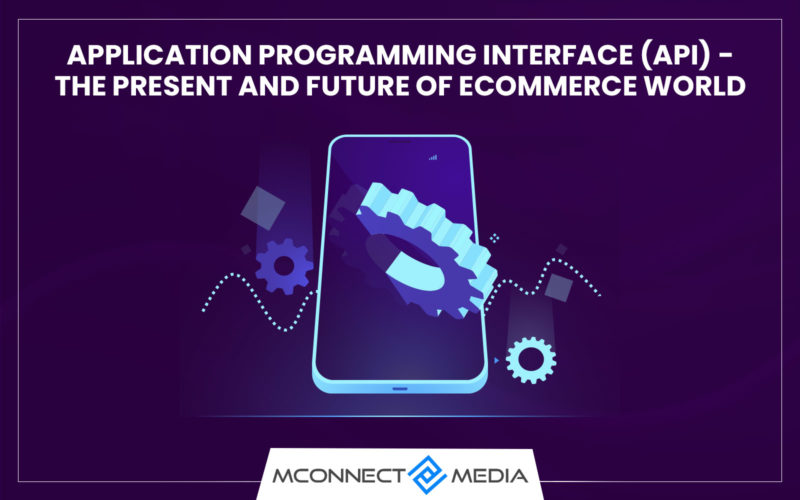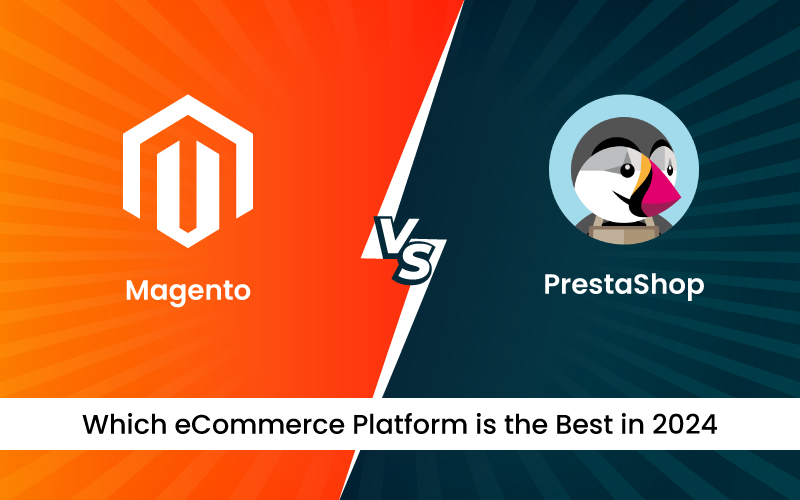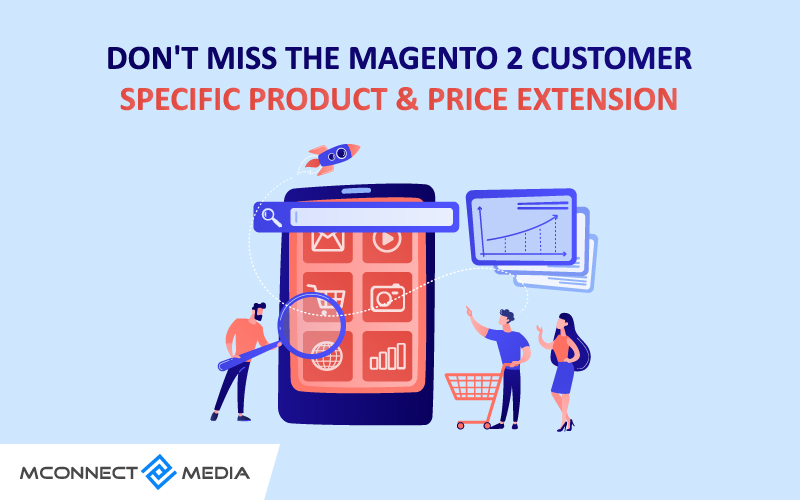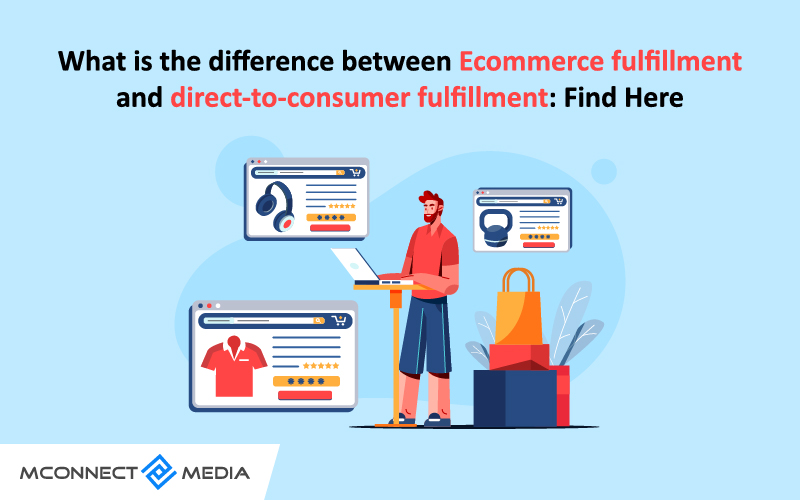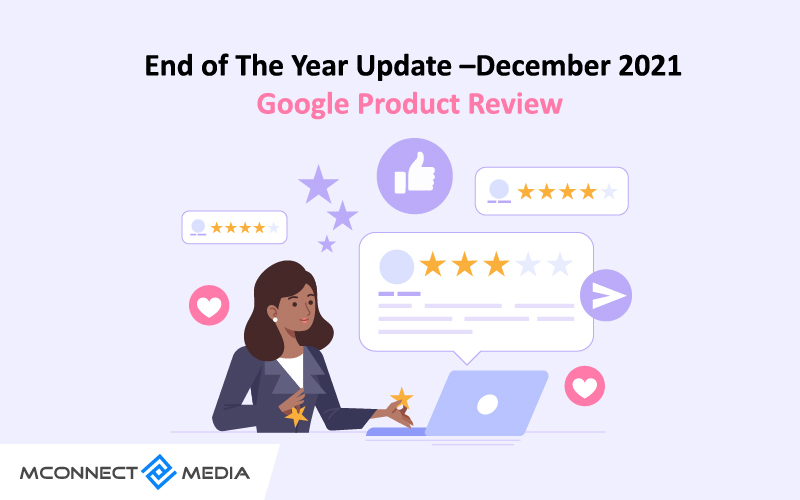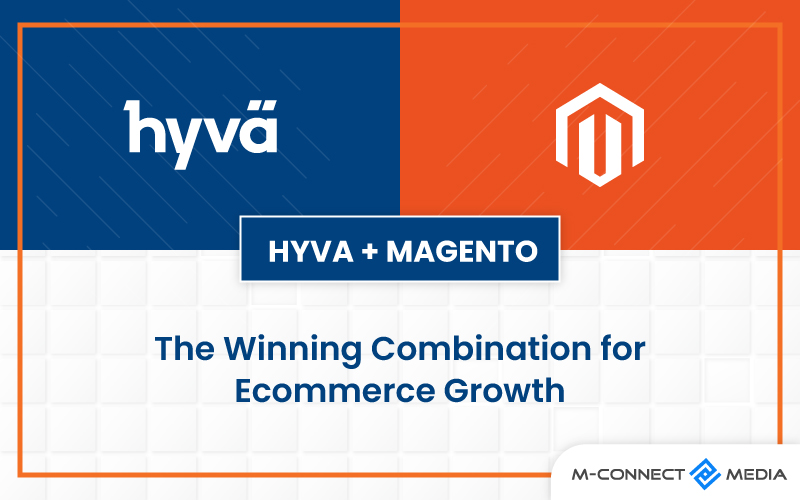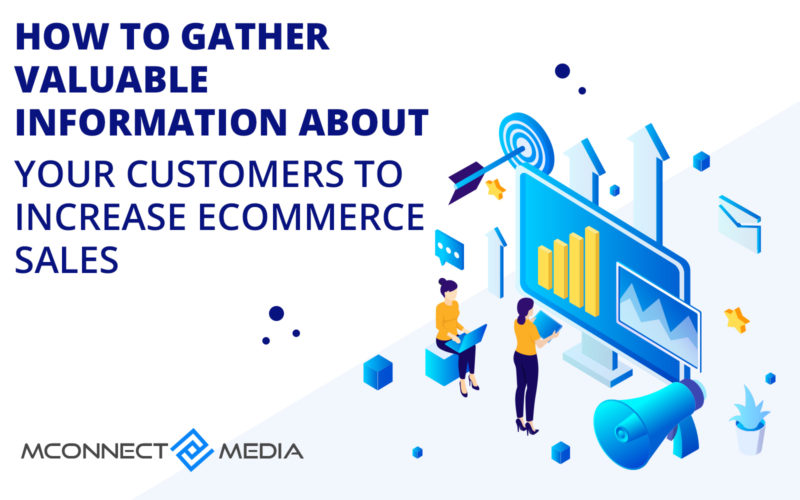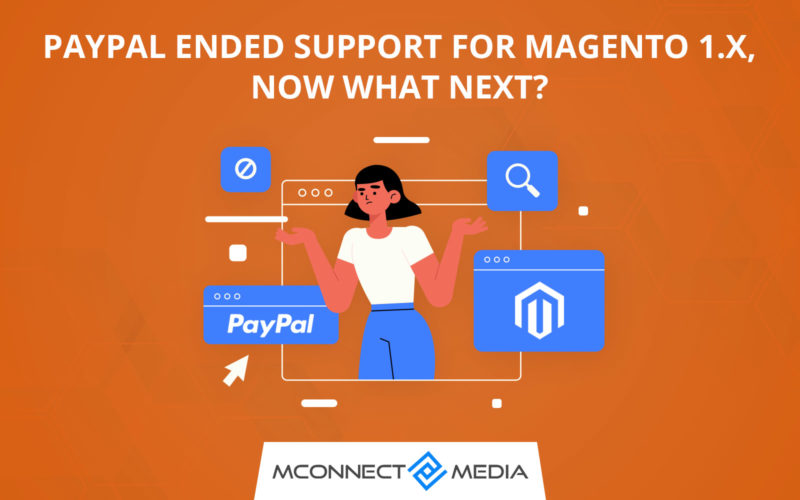Since the day E-commerce was introduced to the world in the 1970s, it has seen a prodigious progression. From the selling of goods on the internet, we have come this far, where you can now order services like carpeting, plumbing, cabs, teaching, etc. on the Internet as well. In the early years of e-commerce reign, there were no electronic transactions conducted which as you all know have changed for the best and today, we use e-wallets. Earlier, you needed a desktop, and that particular seller’s site to make that purchase, while now you can easily order through your smartphones, tablets, or any smart device, and through any platform which necessarily might not be the seller’s site.
This advancement in eCommerce where online shopping using more than one device and the platform has become possible with one technology, and that is Application Programming Interface (API). API is an intermediary gateway between two systems which helps them communicate with each other and share necessary data to complete the action.
Let’s take an example related to e-commerce! Big e-commerce websites use inventory management systems and the values of its different attributes change according to the number of orders generated. These changes are managed by none other than application programming interfaces. Similarly, numerous APIs targeting different factors such as order status, billing, shipment, product catalog, etc. make e-commerce a much better and successful venture. In all, APIs act as that driving force behind the exchange of data between systems, cloud, and applications which will give an enormous thrust to your retail business.
10 Ways to Use APIs in the World Of Online Retailing
1. Site Search APIs – A target oriented search enhances customer’s experience
Imagine if Amazon didn’t have any search bars on its site and you would have to scroll through pages to search a specific item amongst thousands of similar ones. I know I would never choose Amazon to shop if that would have been the case. Your site too can lose conversions if you skip this important integration in your E-commerce store.

Site Search APIs provide advanced searching features on your website which results in a positive shopping experience for your customers. The well-established e-tailers apart from the big fishes such as Amazon, eBay, etc. are already using this API for a custom search on their site.
The major advantage of deploying custom search API even in you’re “just launched” store is its ability to convert your customers. The people who are visiting your website just to window shop may not use the search box, but the ones who have a target in mind always puts it to good use to filter through the brands, colors, sizes, and styles.
If you think that adding filters to your webstore may do the job, then you are wrong. Yes, they do a very good job at removing unnecessary things, but don’t work when a customer needs to find the exact item. Its inability to drill down as a site search API makes this API inevitable for e-tailers.
2. Social Media APIs – Signs of trust to share with your customers
Social shopping is expected to be one of the hottest e-commerce trends this year. With artificial assistants and chatbots aiding online retailers in conducting business through social media, we are far the need of explaining what social presence can do for businesses
The social media APIs allow the display of your presence on the social media. Comments on Twitter regarding your products, a number of likes on Facebook, reviews of your products on different platforms can be displayed on your e-commerce website through these APIs.
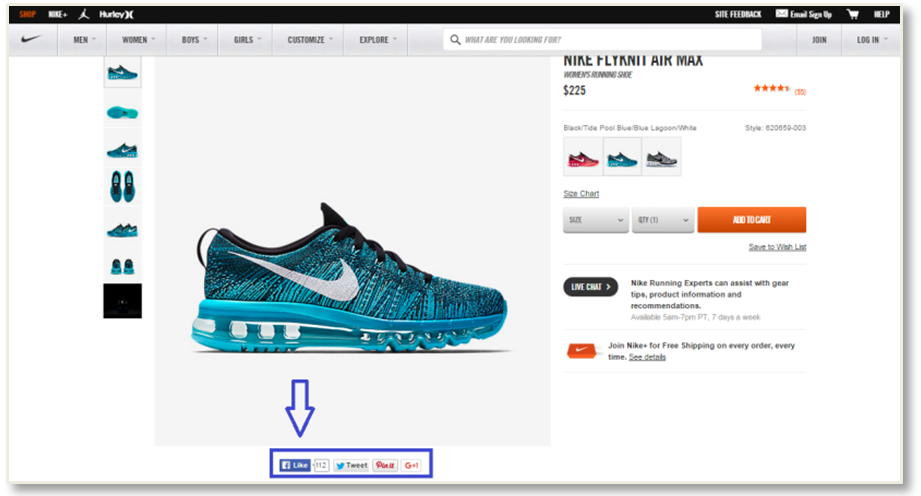
These widgets confirm your authenticity through the reviews received on your social media pages. It increases the confidence level of the shoppers and thus the social proof APIs are considered to be the major trust signals by the customers.
If you are new in the world of E-commerce, you can use APIs to stream the social media feeds on your site. These feeds are handled by the respective APIs, for an instance, Twitter comments about your product are displayed on your site with the use of Twitter API.
3. Marketing Automation API – No need to drill down the email lists
The worst thing about the millennial era is that you constantly need to prove yourself. Once proved is apparently not enough. Thus, marketing has become the God of the businesses conducted today. If you know how to sell, you are safe even of your product is not up to the mark, but if by any chance you are an amateur at peddling your products, there is a higher probability of failing irrespective of the product’s quality. Yeah, bitter truth! You may need to suffer a lot if you belong to the clan who hates marketing.
Well, where does that bring us on the talk of APIs? If you have already made it big on e-tailing business, you must be aware of marketing automation. However, those who are planning to launch eCommerce store, you must know about the automation tools that help you market your products to the right audience at the right time.
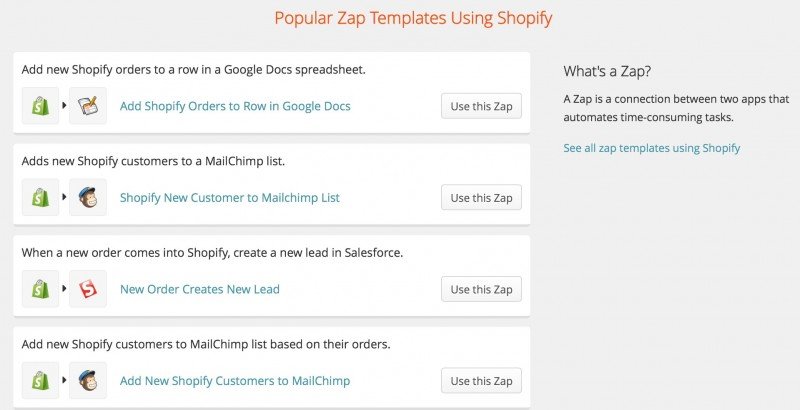
Deploying automarketing APIs frees you from making the email marketing list manually and also from coding such potential APIs on your own. These APIs group your customers according to their personal choices, their average expenditure on your products and their on-site behavior. These personalized marketing e-mails give a feeling of familiarity to your customers when they see the products in which they had shown interest the last time they visited the website.
4. Anti-Fraud APIs – Identifies fraudsters immediately
Fear of fraudsters is a two way feeling when eCommerce is concerned. Both the parties, the seller as well as the buyer fear of getting scammed. Well, as a seller, it is you who need to convince the customers that you are legit. And, also as a seller, it is again you who need to find our whether the buyer is authentic or not.
Recommended Read: How to Make your eCommerce Website Anti-Fraud?
The latter part can be easily handled by the anti-fraud APIs. Adding these APIs to your business workflow is the smartest thing you would do as an e-tailer. All the information that a customer feeds into your website is verified by an anti-fraud algorithm to pick out grotty behavior while making a purchase.
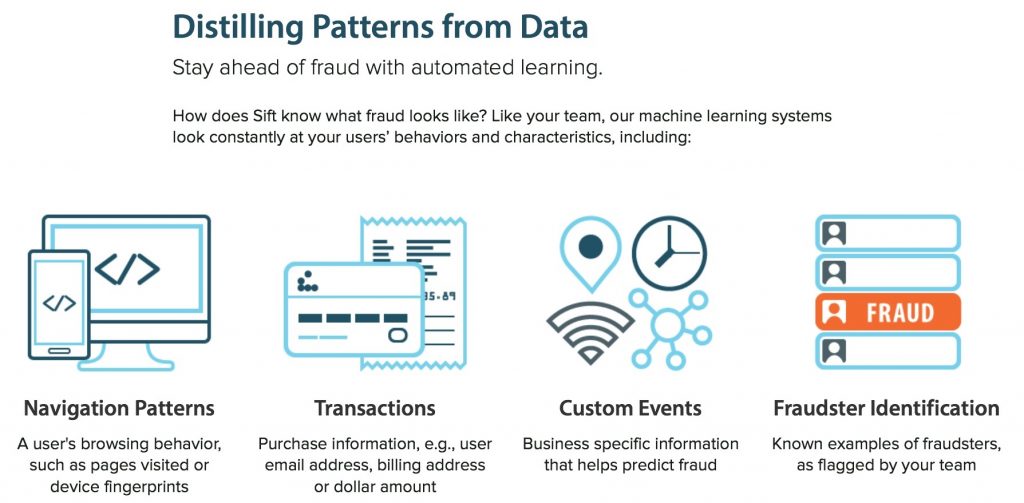
Anti-fraud APIs follow financial updates as well as credit card scams to make it a reference when similar behavior is observed by its algorithm. Using anti-fraud APIs make your investment safe and secure without actually doing much about it.
5. Price Comparison APIs – Because competition is always on
If you are already a store owner on the web, you may know how fickle can your customers be. Customers forget about your store being their favorite one as soon as they see the same product at a lesser price on your adversary’s site.
The only way to stand tall through the cut throat competition amongst online retailers is to strategize your selling ideas better than the other sites. And for that, you need to know the selling prices of their products. Price comparison API is the answer to these eCommerce issues.
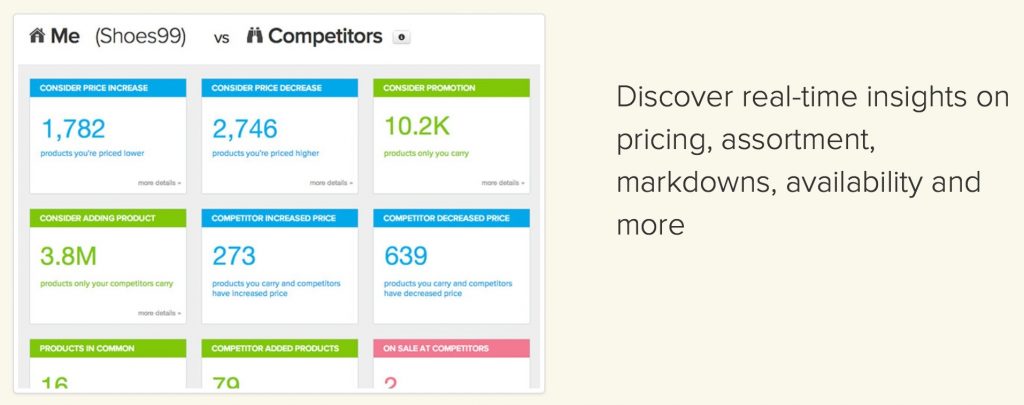
All you need to do is link the product catalog to a price comparing API and it will automatically generate reports that compare your prices with the pricing level of your competitors. This API helps a great deal during Holidays when sales are expected to skyrocket as it is crucial to not have a huge gap between prices during peak seasons.
6. Shipping APIs – This is how tracking orders is possible if you are wondering
Shipping is that major factor of the E-commerce world which can make or break your online business. There have been instances where online stores had to shut down because of their unreliable shipping methods which are overpriced at the same time. Every online seller is expected to display the tracking details of an order. Well, that’s next to impossible if you don’t use APIs.
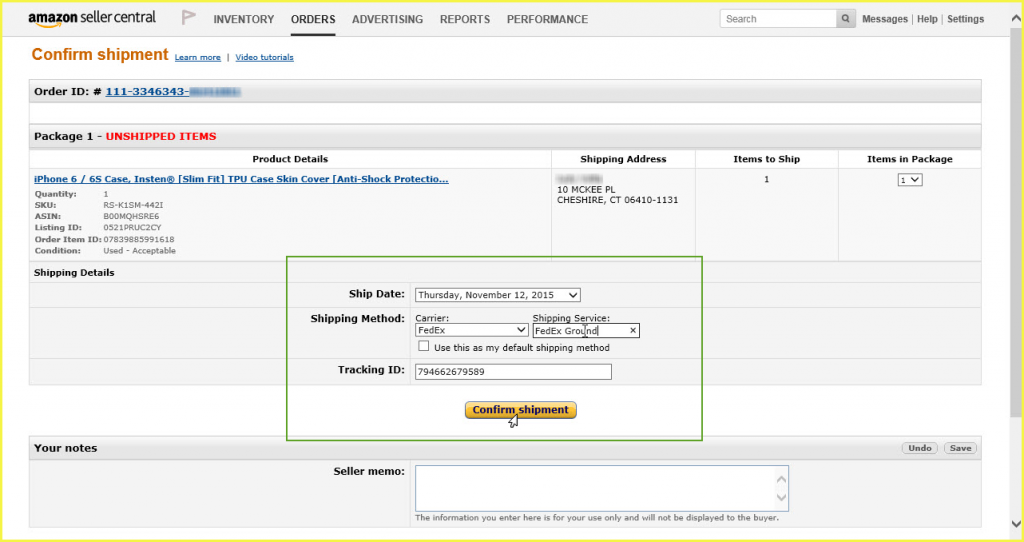
Shipping APIs have made eCommerce a much better business. You can embed shipping and delivery API to your website to give your customers a trustworthy shopping experience. These APIs automate the entire shipping process right from its packaging to its delivery.
This API gets updated after every task in the workflow is done and make the info visible to both, the online store owner and the customer. The shipping API can be activated after the purchase is complete on site to prompt the registered seller that a certain product should leave the supplier’s warehouse and reach at the specified address.
This API tracks each detail as to where is the package being shipped first, how many steps it is taking, when did it reach your city, and when can you expect the delivery. It keeps both the parties updated until it reaches the final destination. Emerging E-commerce stores are facilitating the need of tracking the packages through these APIs which are a must have for the fresh e-tailers who wish to leave a mark on their customers.
7. Product Data APIs – A much-needed API especially if have a B2B e-commerce software
Coding and firing query to retrieve data from the database have always had glitches which affect the immediate sales. Product data APIs simplifies these tasks at the time of eCommerce Software integration. This API retrieves product details from the global database or inventory management system.
The product details that this API fetches and displays include brand images, product description, exact product titles, specifications and availability of the products. Auto-populating the catalog content becomes easier with these APIs.
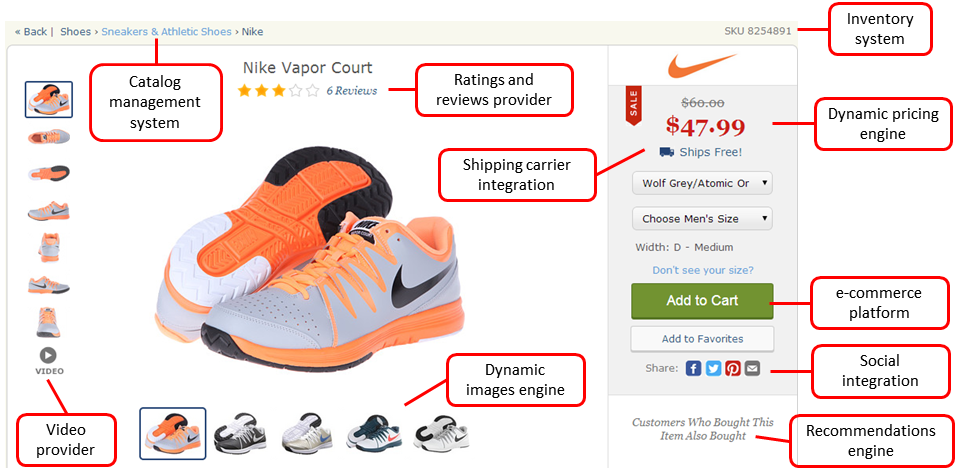
You can integrate and develop the connection of this API with many carts which is why this is mostly used by B2B eCommerce sellers. Although integrating it may require technical expertise, but there are companies that can assist you with it.
8. Affiliation APIs – You may be using this API without even knowing it
It is pretty amazing how people earn just by affiliating their website with major eCommerce websites. There are online stores which simply lists the prices or talk about certain products on their websites, especially bloggers and vloggers. It is more like a small store of their own without having to invest in stocking the actual products.
If your site to consists of widgets that link the product items on another e-commerce platform such as Amazon, then you are unknowingly using Amazon’s affiliate API. Similarly, if you are making big in online retail business and want other people to affiliate with your store, integrating this API will help you through it.
Affiliation has become a big business today. Bloggers that talk about fashion, technical products, accessories, hotel stays, etc. are affiliates of that business which indirectly boost the sales. You can be on the either side of the bridge, get commission by affiliating your store with other big fish or give commission to other stores and personals to grow your business.
9. Recommendation Engine APIs- Suggestions that change your business game
Most of the established online stores have already deployed recommendation engine APIs and as a result, have experienced better exposure of products of the same genre as well as sales. This API can work on your website and can also help you build a potential marketing list.
If you may have noticed, let’s take the most common example of Amazon, when you purchase a product there is a slider at the end with a title of “Frequently bought together” along with the product that customers show interest in. This is what recommendation API does, highlights the other products which the customers are bound to the customer at least once and make a bigger purchase.
There is another way in which the recommendation APIs may increase your sales which are by giving recommendations on the basis of the items. Usually titled as “customers who liked this also liked this”, this feature increases the visibility of many associated products affecting the sales directly.

The most effective recommendations through these APIs are targeted on a personal level. These APIs uses previous shopping patterns of the customers and recommend products on that basis. This API can suggest your customers on their favorite brands, colors, and styles making their experience a pleasant one.
10. Personalization APIs – More than mere suggestions
Yes, we did talk about product recommendations in the previous API description. However, 2017 is going to be more about personalized selling other than anything. Personalization APIs keep track of your visitor’s online behavior, their pattern of preferences, and everything that can be connected back to your online store.
It analyzes the customer’s interest on the basis of his online searches, social media reactions, visits and clicks on other online stores and accordingly sends recommendation e-mails. These APIs use complex algorithms which enable reordering of products on the website according to the customer’s potential interests targeting sales more confidently.
As this APIs track not only the customer’s previous purchases and current clicks on eCommerce sites but also monitor social media interests and other searches, they work on point to make better conversions. Indeed these APIs make more than mere suggestions.
Deciding whether to use these APIs or not is something that may shake you up because the fact remains that eCommerce businesses which do not consider using APIs are not here to stay. It has become inevitable to use application program interfaces to stay in the business. The more pressing issues about APIs are its characteristics.
What does a good API integration mean?
There are three characteristics that a good API must have apart from a great code. Let’s have a look!
Technical Documentation and Support
Documentation is something that developers hate. However, this is the only thing which helps them when stuck getting a bug fixed. You must have an extensively written API documentation which can be referred any time with dependability.
Documentation is something that developers hate. However, this is the only thing which helps them when stuck getting a bug fixed. You must have an extensively written API documentation which can be referred any time with dependability.
Security and a Commendable Performance
These are the most important factors of API integration. There are open as well as private APIs and using the former one is like an open invitation for bugs and worms. Make sure your API is secure and any infiltration of outer objects does not affect its performance. Compromising on either of these aspects may have disastrous results for your business.
Trustable Functionalities
As you all know that coding is just the primary step of any development. There are other functionalities in which your API should score before you choose to deploy it in your website. Validating data, authentication, and authorization, and testing are a few other factors which any API should have a better score for.
APIs have already steamed up the eCommerce market and this year is definitely going to be a great turning point for the amalgamation of e-commerce and APIs. Listed as an expectedly emerging E-commerce trend, 2017 is definitely present as well as the future of the eCommerce industry. Follow latest API trends to elevate your business value in 2017!
For any further information or query regarding eCommerce, Talk to our eCommerce business consultant anytime!!!


